Abstract
The United Kingdom Coordinating Committee on Cancer Research represents the major organizations funding cancer research in the United Kingdom. The deliberations of a working party convened by the committee to evaluate recently expressed concerns that the changes in the NHS threaten research, especially clinical trials to evaluate new treatments, are reported. A survey of contributors to trials coordinated by the committee showed that half are now experiencing difficulties in continuing to participate in clinical trials. The two major problems identified were lack of time and of staff, especially for NHS staff in non-teaching hospitals. Recent changes in junior doctors' hours and proposed reductions in the length of time for training will exacerbate this. It is possible to identify the direct and indirect excess costs of conducting research in the NHS, but currently the mechanism does not exist to designate funds specifically for this purpose. Consultation with the regional directors of research and development confirmed that the service increment for teaching and research is not the solution for this. Proposals are made to secure future clinical research in the NHS, including finance, indemnity, the licensing of new drugs, the greater use of nurse counsellors, and the value of cancer registries.
Full text
PDF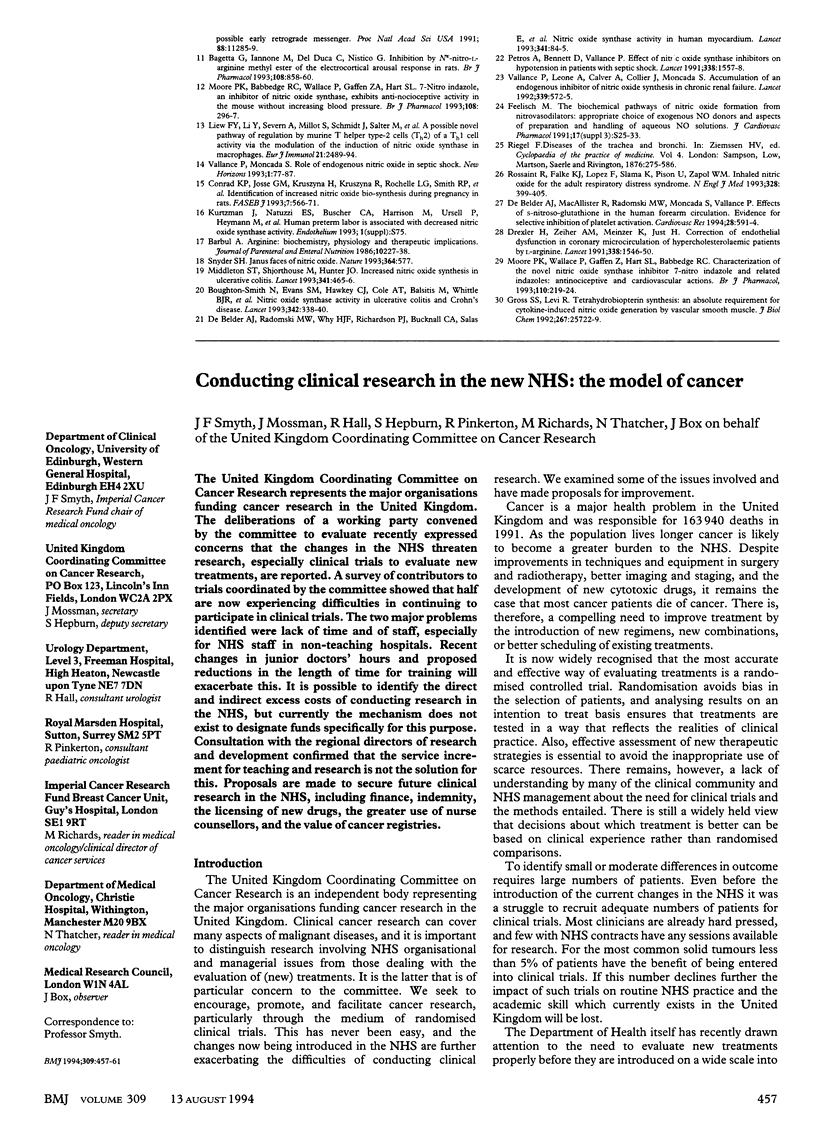
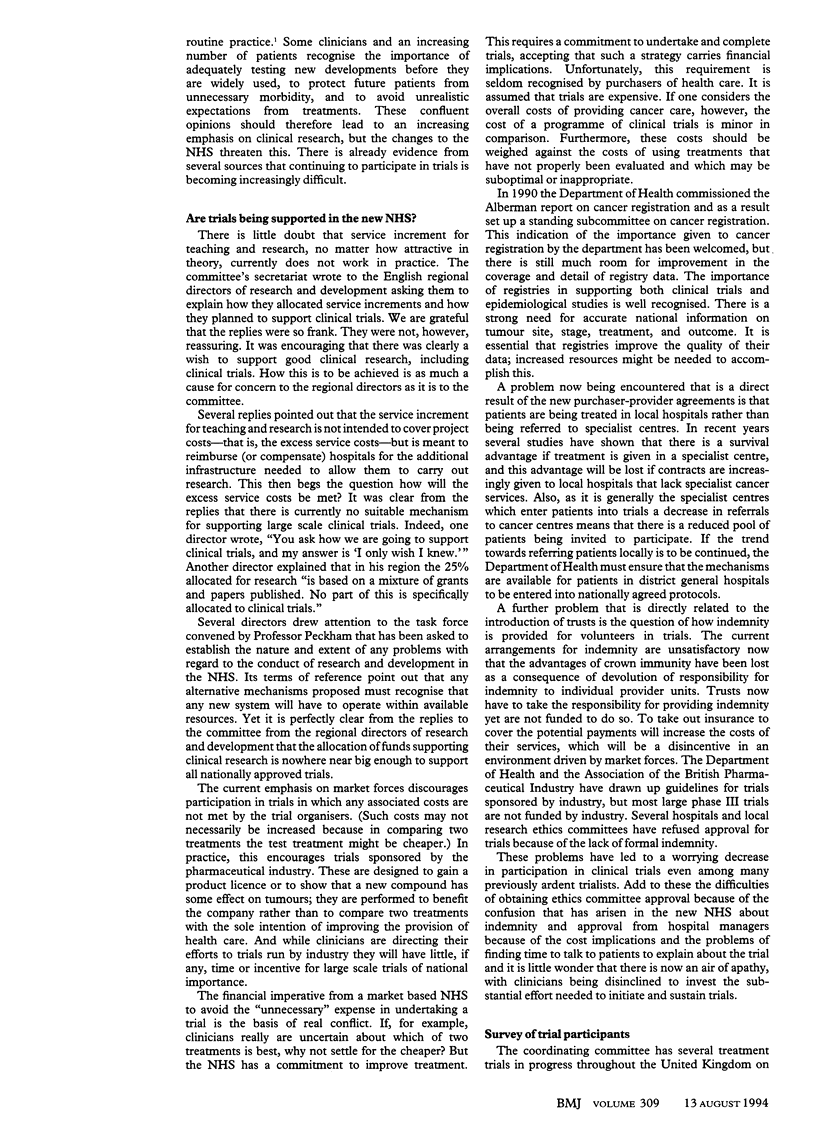
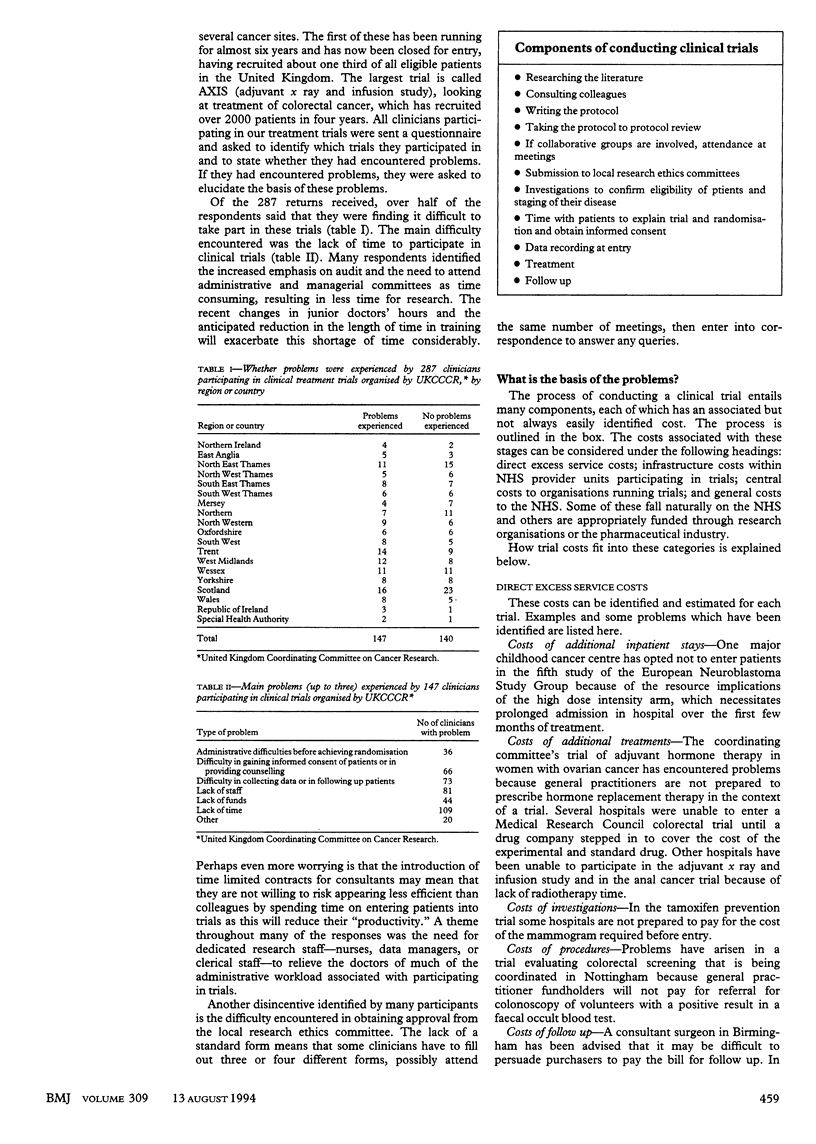
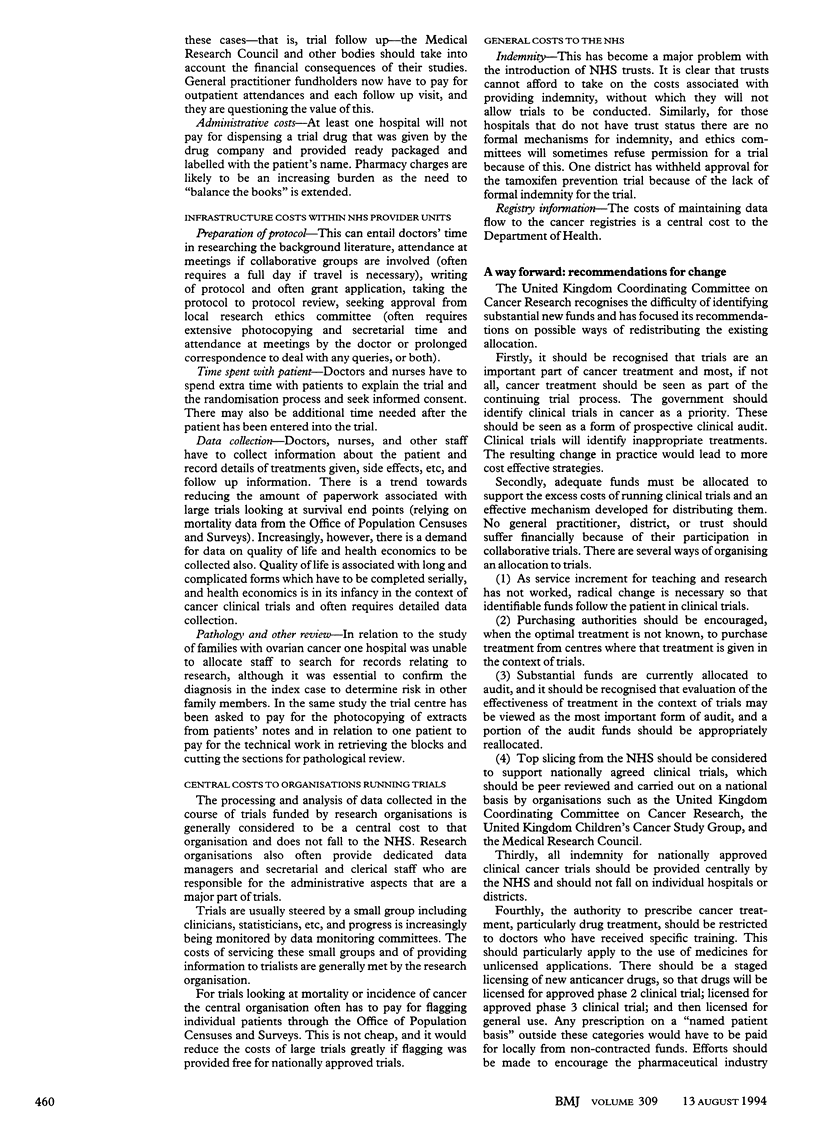
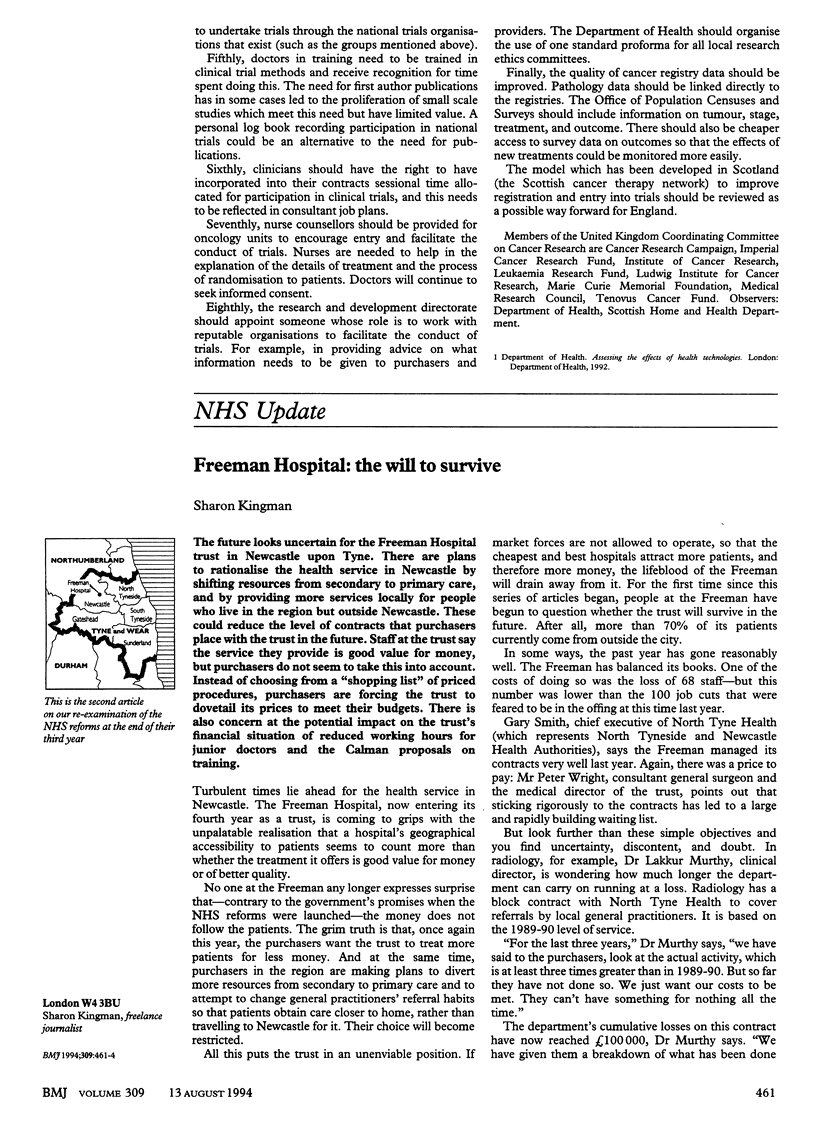
Selected References
These references are in PubMed. This may not be the complete list of references from this article.
- Smyth J. F., Mossman J., Hall R., Hepburn S., Pinkerton R., Richards M., Thatcher N., Box J. Conducting clinical research in the new NHS: the model of cancer. United Kingdom Coordinating Committee on Cancer Research. BMJ. 1994 Aug 13;309(6952):457–461. doi: 10.1136/bmj.309.6952.457. [DOI] [PMC free article] [PubMed] [Google Scholar]


